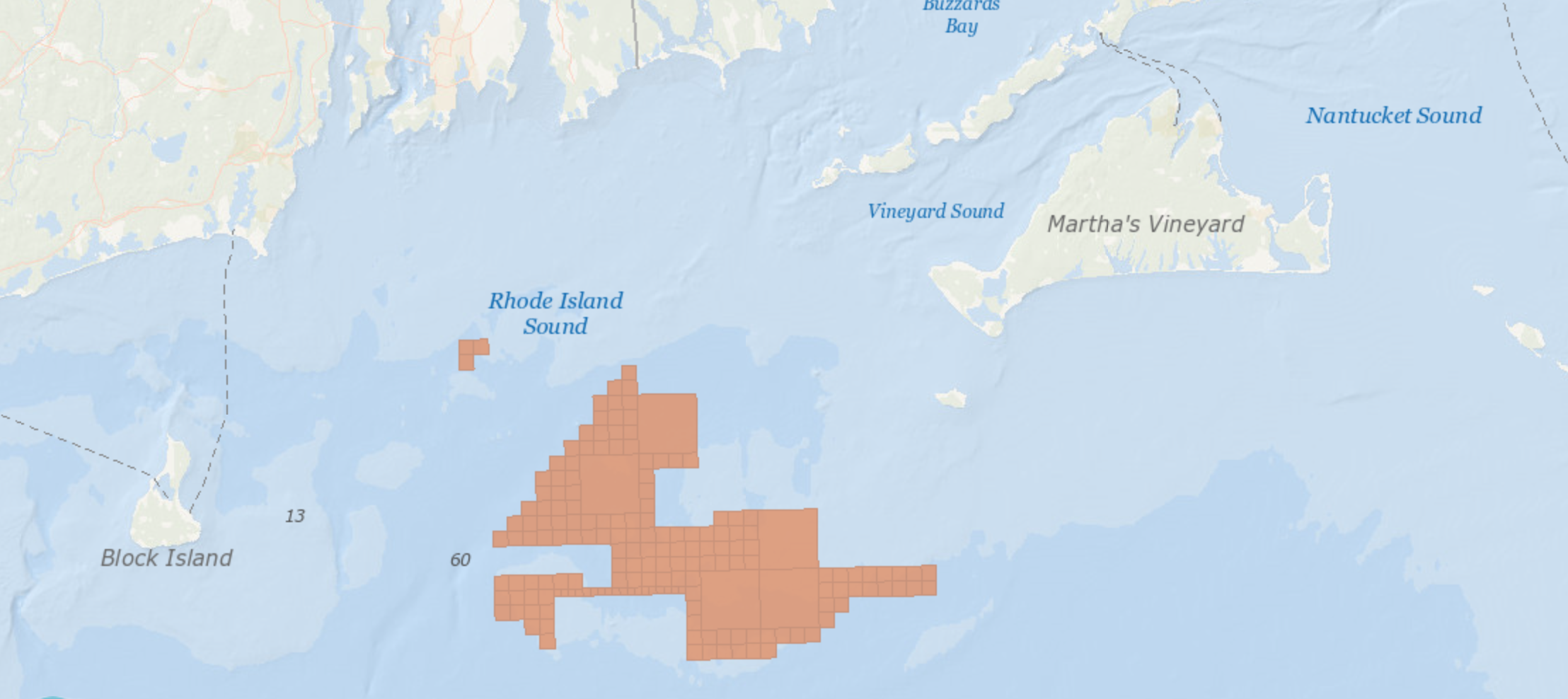Offshore wind partners Ørsted and Eversource submitted a proposal for an 884-megawatt project called Revolution Wind 2 in response to Rhode Island’s newest wind power solicitation, promising “unprecedented investments in port improvements and shipbuilding.”
“Ørsted and Eversource are leading the buildout of a homegrown American offshore wind industry, and Revolution Wind 2 will further advance the state’s leadership position in this growing green jobs sector,” the companies said in announcing their proposal Monday.
Revolution Wind 2 would be a second phase in the developers’ plans for their federal wind energy lease area, on a tract south of the current Revolution Wind project area that starts about 18 miles south of Point Judith, R.I.
With the 2016 installation of five wind turbines off Block Island in 2016, Rhode Island became the first base for the U.S. offshore wind industry. The 30 MW Block Island Wind Farm, built by start-up Deepwater Wind and later acquired by Ørsted, has had its share of troubles, ranging from erosion exposing sea floor cables to turbine outages. But it played a big role in establishing Rhode Island as a base for future utility-scale projects off southern New England.
“From the ‘starting five’ at America’s first offshore wind farm to the major work already underway for Revolution Wind, we’re proud to be Rhode Island’s trusted offshore wind partner,” said David Hardy, Ørsted’s group executive vice president and Americas CEO.
The first 704 MW Revolution Wind phase, planned for a construction start later this year and to be operational in 2025, still needs a final environmental assessment statement from the federal Bureau of Ocean Energy Management. Regulators are looking at a laundry list of objections.
The Rhode Island Coastal Resources Management Council is likewise still considering the project. In December the board approved a plan for more than $3 million fund to compensate displaced fishermen.
In announcing the new proposal, Ørsted and Eversource pitched planned new maritime investments in Rhode Island and at Quonset Point, the former Navy air station on Narragansett Bay that was a base for the Block Island project and has grown with other wind developers entering the U.S. market.
- $35 million toward the Quonset Development Corporation’s plan for a “regional offshore wind logistics and operations hub at Quonset Point.”
- New union jobs to support expanded construction of advanced foundation components at the Port of Providence.
- Building two new crew transfer vessels for Revolution 2, in addition to five now under construction at Blount Boats, Warren, R.I., and Senesco Marine at Quonset Point.
- A new Ørsted engineering hub with about 75 new local engineering jobs, “in a state-of-the-art facility that will serve as an Ørsted engineering center of excellence in the U.S.”




